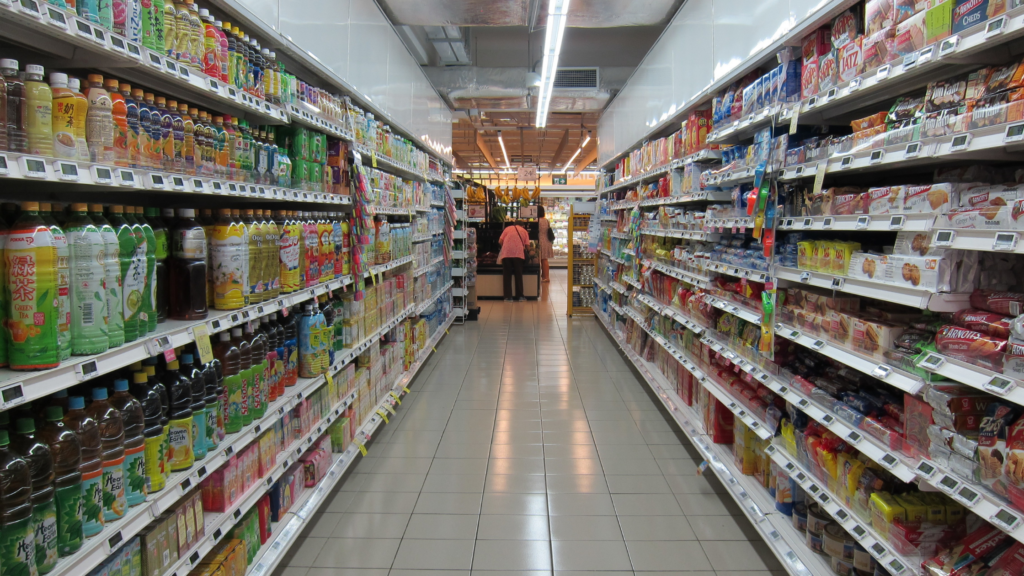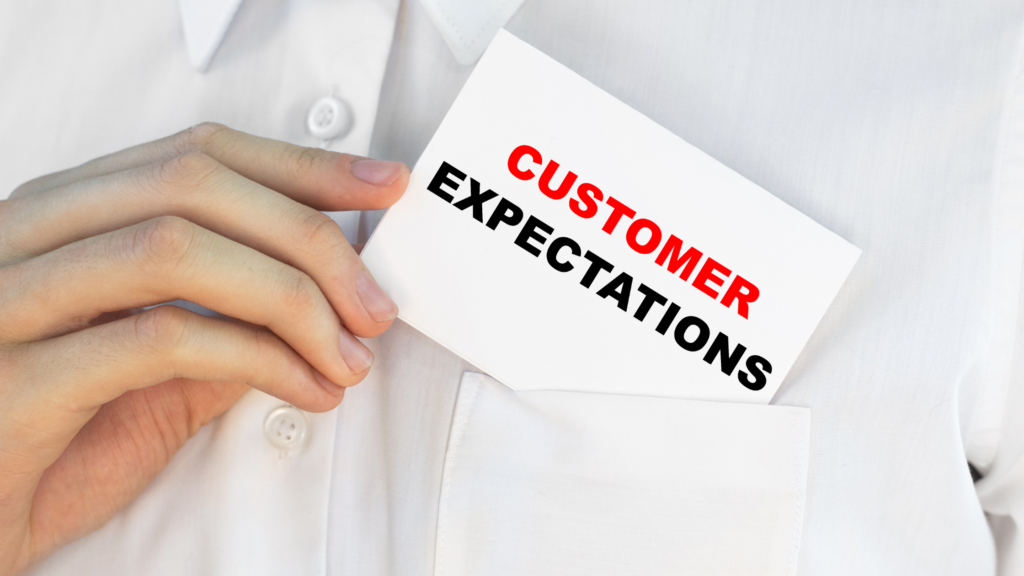
- Products
- Solutions
- Learn
- Partner
- Try Now
The use of ghost stores for grocery delivery is a trend that is growing in popularity. It’s a strategy that retailers are using to provide grocery delivery services without the need for more physical retail space.
Retailers can use these stores as pick-up points, distribution centers or even just storage facilities and can improve their last mile problems.
Dark stores can also be used to provide customers with the opportunity to pick up their orders in person if they prefer.

This is an opportunity for retailers to open up new markets and increase their customer base by providing them with new options.
How do Ghost or Dark Stores Work?

Dark stores are a new retail trend.
It is a way of shopping without having to physically go to the store.
You can shop online and have your purchases delivered to your home address or pick them up at a local store.
The idea is that retailers can offer more discounts because they don’t have to pay for the cost of operating a store 24/7. In return, customers get deals on products that they would never be able to find in a regular store.
When you shop online, the company will deliver your products from the warehouse straight to your door.
If you want to pick it up at a local store, you can order online and select that option when completing checkout. The retailer will then process your order and have it ready for pick-up at the store within 24 hours.
Processing orders for dark stores is similar to fulfilling orders for warehouses, but on a smaller scale:
- Receiving and processing online orders
- The employees receive orders electronically
- The employees pick orders displayed on the trolley’s digital screen
- In many cases, multiple orders can be collected simultaneously
- The order is packaged and shipped
In a nutshell, a dark store is not decorated like a traditional, customer-focused retail outlet.
The Advent of Increasing Delivery Expectations by Q-commerce Companies

Ghost or dark stores saw impressive growth during the pandemic in 2020.
Approximately 67% of European consumers shopped at dark stores during the pandemic.
The pandemic led to an increase in online shopping, which prompted retailers to rethink store formats, with many turning traditional shop spaces ‘dark’, which they used to process and fulfil online orders.
Data also shows that a majority of shoppers in the UK believed that they would continue purchasing food/groceries online after the lockdown.
Is Q-Commerce just a Trend?

Many experts say that Q-Commerce could pass maturity at the rate it has grown.
Several trends seem to work against Q-Commerce.
Many people are moving towards slow living and consuming slow food as well as being more aware of the origin and low food miles.
It is hard to believe that this is only a momentary movement when you consider the level of investments being secured by some of these new companies.
Gorillas, an e-commerce platform launched in the UK in March 2021, has received $235 million in funding from Delivery Hero. Due to the cash injection, the online grocery delivery firm now has a valuation of $3.1 billion.
As of January 21, Dija raised £14.4M and Weezy (operating in London, Bristol, Brighton, and Manchester) raised $20M (nearly £14.6M).
On the other hand, Rotterdam and Amsterdam have banned dark stores from opening, with Lyon in France closely following.
According to experts like Chapman Taylor, dark store facilities are here to stay.
The challenge is convincing European city authorities of their benefits: reviving redundant retail units and using electric vehicles for delivery, for instance.
For the time being, dark stores are likely to remain in cheaper more marginal buildings integrated into the dense urban fabric in an effort to meet very specific local needs.
How Ghost Stores are Evolving in the European Market?
Technological innovations are allowing better use of space and offering exciting new urban fulfilment formats.
According to the Future Gazing report, online retail sales are projected to grow by 37 Billion Pounds by 2025, from 27% to 30%.
A fulfilment centre also needs staff to pick and pack the goods, as well as delivery services to get the goods to customers’ doorsteps.
So, emerging players and dark store start-ups like Gorillas, Dija, Weezy, Jiffy, Getir, Zapp, Cortilia, Rohlik, Glovo, and Delivery Hero, are thinking out of the box strategies to stand out.
Partnerships, utilizing existing space, space acquisition, sourcing equipment, and smart technology are all part of that strategy.
As a result, three distinct business models for dark stores have emerged within the industry:
- Dark store operators, such as Gorillas, Zapp, Jiffy, JOKR, and Getir, who use delivery services.
- Supermarkets and grocery stores that partner with dark store operators, including Carrefour and Cajoo in France, Kroger and DoorDash (Dmarts).
- Apps that deliver food such as Deliveroo, DoorDash, Delivery Hero (Dmarts) and Gopuff are now delivering groceries.
Will Dark Stores conquer Grocery Delivery? Major Challenges Faced by Retailers
Delivery management is one of the key challenges for retailers. It is not enough to just have an online store, you also need to be able to deliver goods to your customers.
Getting out of challenges, such as high costs of distribution, low-profit margins and competition from online retail is the need of the hour.
Retailers are trying new strategies in order to stay competitive in this environment:
Also, it looks like there is a lot of money being thrown around on the new startups.
The vast majority of them are overseas companies with a proven business model in their home markets that are looking to invest in the UK.
Using hyper-localized warehouses in small, densely populated areas, these dark store startups promise delivery in less than 30 minutes.
Therefore, they pay for more than just delivery drivers. They pay for the infrastructure of supply and storage as well.
In the case of Tesco, it is also throwing huge resources at instant delivery and still hasn’t succeeded.
Tesco’s first attempt at instant delivery – Tesco Now – failed to attract much attention. Trials included no minimum basket value but a delivery charge of £7.99. A year after the experiment began, it quietly ended.
Supermarkets already operate at a low margin, so spending money on delivery only makes things worse.
The average retailer makes only 2 or 3 per cent.
Consequently, there isn’t really a lot of room for spending on delivery.
With half a million delivery slots a week, even Tesco, the biggest player in the UK, cannot reach half of the population because the vans are too expensive.
The delivery revenue gap has affected even Ocado.
Food delivery isn’t what they make money from, they make money from advertising and selling licenses for technology.
As a result, it is profitable.
How to win in Online Grocery Delivery and Optimize Last Mile?
The pandemic has increased the adoption of online grocery shopping and now people are buying online more than ever.
In addition, traditional grocers who pick up orders online from their own stores and offer delivery without any customers fees are usually suffering from a negative operating margin.
When a third party picks from a store, their margin is probably a little higher than their own delivery system.
On the other hand, Click-and-Collect services do not deal with the last mile challenges and can be better than other options.
An Ideal Solution for the Grocers and Retailers
Online grocery is reaching a tipping point in most developed markets. Those who act quickly and assertively will be able to shape the market and gain an advantage.
Grocers could achieve profitability by combining the following measures:
- By increasing the minimum basket size.
- Fees for delivery if there is no one to pick up the order.
- Adding a pickup fee to click-and-collect.
- Offering a monthly or yearly membership plan.
- Master the omnichannel network.
- Remove unsustainable channels.
- And most importantly, improving last-mile challenges with top-notch delivery management software with great analytics.
In the end, it is all about convenience and focusing on delighting customers is going to benefit you in the longer run.
Subscribe to stay ahead with the latest updates and entrepreneurial insights!

Subscribe to our newsletter
Get access to the latest industry & product insights.





















